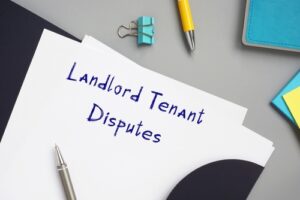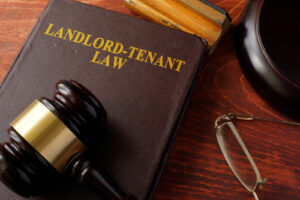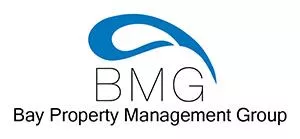How to Deal with Difficult Tenants in Your Rental Property
Dealing with difficult tenants can make your job as a landlord or property manager more challenging than it needs to be. Troublesome tenants may pay rent late every month, disregard lease terms, or cause reckless damage to your property. Unfortunately, most rental owners are tasked with handling difficult tenants at some point, and knowing how to proceed is crucial. Today, we’ll review a few problem tenant types and tips to help you navigate the situation. Read along to learn more.
Contents of This Article:
- What Makes a Tenant Difficult?
- How to Deal With Difficult Tenants
- Protect Your Investment With Professional Management
What Makes a Tenant Difficult?
Tenant screening is a great way to weed out any potential problem tenants before any major issues arise. However, it doesn’t predict a change in a tenant’s financial circumstances or personal situations. So, if you’re a rental owner or property manager in Fairfax, look for these common signs of problem tenants to recognize issues from the start and respond accordingly.
Signs of a Difficult Tenant
- Late or Nonpayment of Rent- Paying rent on time is one of a tenant’s main responsibilities. When a tenant consistently fails to pay rent on time or doesn’t pay it at all, it creates financial strain for landlords.
- Property Damage- If a tenant causes significant damage to a property beyond normal wear and tear, it can be costly for the landlord. For instance, intentional damage, neglect, or failure to report maintenance can lead to larger issues within the property.

- Violation of Lease Terms- A troublesome tenant may repeatedly violate the terms of the lease agreement. For instance, they may bring in unauthorized pets, sublet without permission, cause excessive noise, or other lease violations.
- Disregard for Property Rules- Along with violating lease terms, some tenants may purposely ignore property rules and regulations. For instance, they may disregard proper waste disposal, parking rules, or smoking restrictions.
- Poor Communication- Effective communication is crucial for a healthy landlord-tenant relationship. However, difficult tenants may frequently avoid or ignore communication attempts, making it challenging to address concerns or resolve issues.
- Complaints and Demands- Tenants can voice concerns or request repairs. However, difficult tenants may excessively complain, make unreasonable demands, or be confrontational.
- Illegal Activities- Some tenants think they can get away with anything. However, tenants engaged in illegal activities, like drug dealing or conducting unauthorized businesses, pose major risks to the landlords, other tenants, and the property.
How to Deal With Difficult Tenants
It’s essential to recognize that not all problematic tenant situations are entirely the tenant’s fault. After all, landlords need to be fair, responsive, and proactive in maintaining the property. Additionally, they should promptly address tenant concerns and follow appropriate legal procedures.
That said, dealing with difficult tenants can be challenging, but there are several strategies you can use to address issues. Remember, you’ll want to strive for a healthy landlord-tenant relationship. As such, here are some tips on how to deal with difficult tenants.
- Screen Tenants
- Keep Communication Open

- Understand Your Rights and Obligations
- Document Everything
- Mediate and Resolve Conflicts
- Seek Legal Advice If Needed
- Hire Property Management
Screen Tenants
Before signing a lease agreement, pre-screening applicants will reveal any prior criminal history and evictions to ensure they’re qualified to live in your rental. Additionally, a thorough tenant screening process allows you to assess their financial stability, including their income, employment history, and creditworthiness. Finally, you’ll want to select tenants that meet your qualifications and will pay rent on time.
Keep Communication Open
You’ll want to establish and maintain open lines of communication with your tenants. Additionally, encourage them to express their concerns or issues promptly and provide a reliable method for them to contact you. If they reach out with concerns about the lease or maintenance issues, respond to their inquiries in a timely and professional manner.
It’s important to promptly address maintenance requests and hold up your end of the agreement to keep the property in good condition. In addition, you can minimize tenant dissatisfaction and potential conflicts by fulfilling your obligations as a landlord.
Understand Your Rights and Obligations

If you own rental properties, it’s crucial to familiarize yourself with local landlord-tenant laws and regulations. After all, you want to ensure you and your tenants both know your rights. In addition, this knowledge can help address issues within the legal framework and avoid potential conflicts before they happen.
Document Everything
It’s important to keep thorough records of all your interactions with tenants. You’ll want to document it all, whether it’s complaints, repairs, or lease violations. If disputes arise, this documentation will be useful and can support your actions and decisions as a landlord. Additionally, if you need to enter the property, send a written notice at least 24 hours before, and document the visit.
Mediate and Resolve Conflicts
If a dispute arises between you and a tenant, consider using mediation or conflict resolution techniques to find a mutual solution.

That said, mediation may involve a neutral third party who can facilitate productive discussions and negotiate a resolution. Ultimately, you want to strive to create a positive and respectful relationship with your tenants. So, treat them fairly and with professionalism. Fostering a good landlord-tenant relationship can help prevent or mitigate difficulties.
Seek Legal Advice If Needed
In more severe cases, you might want to consult an attorney specializing in landlord-tenant law. That way, they can provide guidance on your specific situation. Additionally, they can inform you of your legal options and help you navigate any legal proceedings, like eviction, if necessary.
Hire Property Management
If you’re wondering how to deal with difficult tenants, the answer is simple–hire property management. After all, some tenants are just hard to deal with, no matter what you do. So, sometimes it’s easier to let the professionals handle the situation. Fairfax property managers can help with the entire rental process, including:
- Tenant Screening
- Marketing

- Move-In and Move-Out Reports
- 24/7 Maintenance
- Rent Collection
- Rental Registration
- Eviction and Lawsuit Services
- Lead Paint Compliance
- Monthly and Annual Financial Statements
Protect Your Investment With Professional Management
Learning how to deal with difficult tenants is essential for rental property owners. However, a great screening process and consistent communication are key to a healthy tenant-landlord relationship. That said, if you’re struggling to keep up with each tenant and rental unit, consider hiring comprehensive property management.
Bay Property Management Group is a full-service management team who can help you maximize your rental profits. We offer comprehensive services in and around Baltimore, Philadelphia, Northern Virginia, and Washington, DC. Contact us today to learn more about our rental management process and how we can help your rental business succeed.




